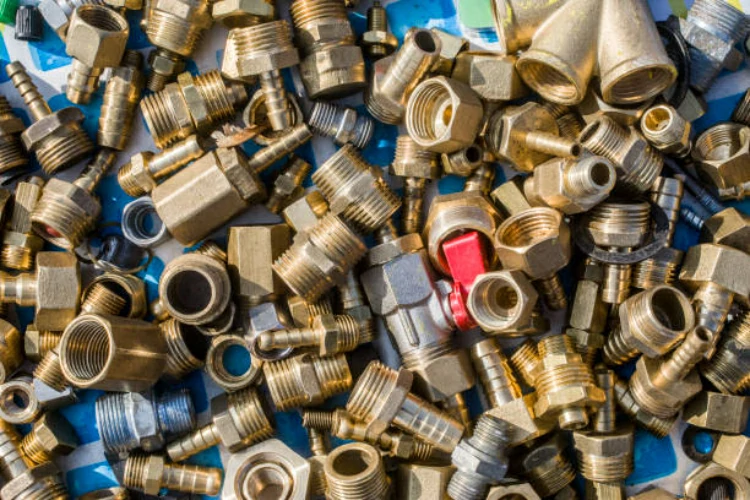Advantages of Brass Ball Valves
Brass ball valves offer several advantages that make them a popular choice for various fluid control applications. Understanding these benefits can help users make informed decisions when selecting valves for their systems.
1. Corrosion Resistance
Brass Construction
Brass is inherently resistant to corrosion, making brass ball valve suitable for use in environments where exposure to moisture, chemicals, or harsh elements is a concern. This corrosion resistance contributes to the longevity and durability of brass ball valve.
2. High Temperature Resistance
Suitable for Hot Water Applications
Brass ball valves can withstand high temperatures, making them ideal for hot water systems, HVAC applications, and industrial processes that involve elevated temperatures. Their ability to maintain structural integrity at high temperatures ensures reliable performance in demanding conditions.
3. Excellent Flow Control
Full Port Design
Brass ball valves typically feature a full port design, which allows for unrestricted flow of fluid through the valve when fully open. This design minimizes pressure drop and ensures efficient flow control, making brass ball valves suitable for high-flow applications.
4. Easy Operation and Maintenance
Quarter-Turn Operation
Brass ball valves operate on a quarter-turn mechanism, requiring minimal effort to open or close the valve. This ease of operation simplifies valve control and maintenance, reducing downtime and labor costs associated with valve servicing.
Disadvantages of Brass Ball Valves
While brass ball valves offer numerous advantages, they also have some limitations and drawbacks that users should consider before selecting them for specific applications.
1. Limited Chemical Compatibility
Not Suitable for Certain Media
Brass ball valve may not be compatible with certain aggressive chemicals or fluids, such as acids, alkalis, and solvents. Exposure to these substances can lead to corrosion, degradation of valve components, and potential leakage.
2. Higher Cost Compared to Other Materials
Premium Pricing
Brass ball valves typically have a higher upfront cost compared to valves made from other materials, such as PVC or stainless steel. This higher cost may impact budget considerations, especially for large-scale projects or applications with budget constraints.
3. Potential Lead Content
Lead Concerns
Some brass alloys used in valve manufacturing may contain lead, which can leach into drinking water and pose health risks, particularly in potable water systems. Users should ensure compliance with relevant regulations and standards regarding lead content in plumbing products.
4. Susceptibility to Dezincification
Dezincification Risk
In environments with high levels of chlorides or acidic conditions, brass ball valve may be susceptible to dezincification, a process that can weaken the brass alloy and compromise the structural integrity of the valve over time.
Conclusion
Brass ball valves offer a range of advantages, including corrosion resistance, high temperature tolerance, excellent flow control, and ease of operation. However, they also have limitations, such as limited chemical compatibility, higher cost, potential lead content, and susceptibility to dezincification. By weighing the pros and cons, users can make informed decisions regarding the suitability of brass ball valve for their specific applications, ensuring efficient fluid control and system performance.
IFAN is a Chinese manufacturer of plastic pipes, fittings and valves with 30 years of experience. If you are interested in IFAN Raccords en cuivre, vannes en cuivre, tuyaux et raccords en plastique, veuillez nous contacter. IFAN offers you a variety of standard pipes to meet your specific needs. Click below to learn more about IFAN’s wide range of affordable and cost-effective valve products and piping system related products.
We will reply your email or fax within 24 hours.
You can call us at any time if there is any question on our production.
For more information,pls visit our webside https://ifanpro.com/
Veuillez envoyer un courrier à l'adresse suivante [email protected]
Whatsapp : + 86 19857948982














Commentaires récents